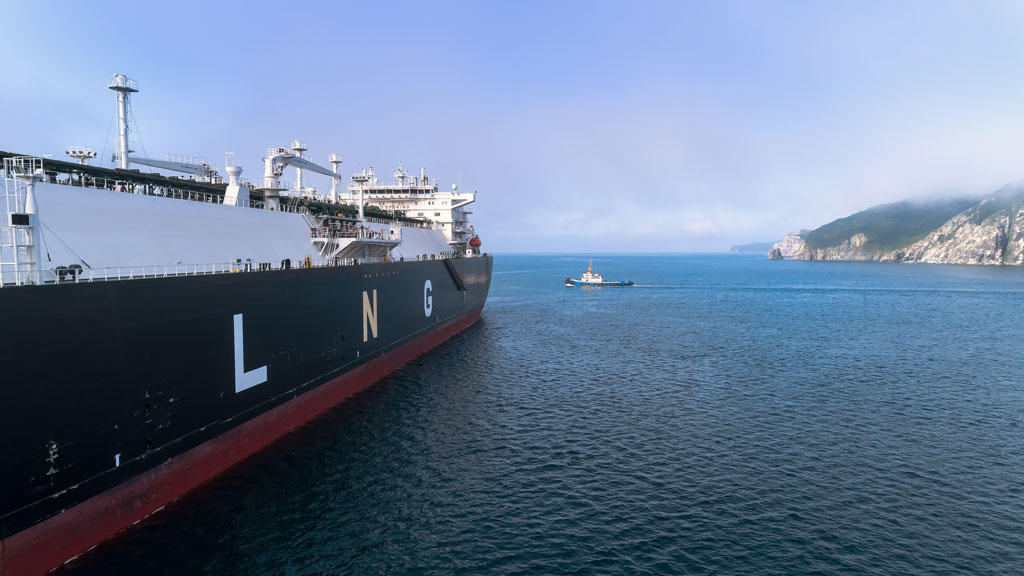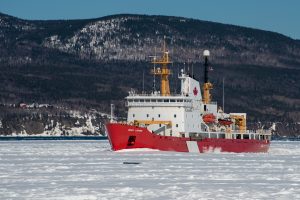The federal government has pushed back the opening of the long-promised, $130 million Nanisivik Naval Facility, a Canadian Forces naval refuelling station on Baffin Island in the territory of Nunavut, to 2024.
The project was first announced in 2007 and supposed to open in 2015. However, construction work only began in 2014 and a series of challenges stalled the venture, including the impact of the COVID-19 pandemic.
“The bulk of the work in the proposed plan was completed in 2022, however work continues on the piping system installation,” explains Jessica Lamirande, spokesperson for the Department of National Defence (DND). “As such, the final survey and as-built documentation, facility commissioning, and demonstration and training were not possible. These elements were pushed forward to 2023.”
The piping system installation is expected to be completed in 2023 and final testing and commissioning work on the facility by September, she says. Crews must ensure all automated systems work correctly, that valves open and close and pumps turn on and off and power systems work correctly. Operating procedures also must be checked and verified.
The facility, on the northwest end of Baffin Island, will support operations of the Royal Canadian Navy’s new Harry DeWolf-class patrol vessels and other government maritime vessels. The primary role of the facility will be to refuel the vessels during the navigable season.
The station will consist of fuel storage tanks for ships and diesel generators, a site office, a wharf operator’s shelter and a storage building. The facility will have a new helicopter landing pad, space for the Canadian Coast Guard to store cargo during annual Arctic resupply missions and allow for the navy and coast guard to transfer and store supplies.
The project has been beset by difficulties since it was announced by former Prime Minister Stephen Harper. In 2017, after a number of delays, it was determined the project was on track to open in fall 2018. That didn’t happen, though, and the date kept getting pushed back for a variety of reasons.
According to Lamirande, construction work in the Arctic presents unique challenges given the climate and significant logistics planning. The weather can also change quickly from sunny and calm to foggy and extreme wind and cold at any time, which means the construction season for the facility runs only from June to September.
Work on the project also must be planned a year ahead of time in order to get the material to the remote site, and the DND counts on sea and air transport to be on time.
Lamirande notes most recently, the 2020, 2021 and 2022 construction seasons were impacted by the COVID-19 pandemic.
“During this period, either no work was possible, or work was limited due to health regulations and travel restrictions.”

Other challenges were caused by wildlife and icebergs. In spring 2021, a main road connecting the facility to the Hamlet of Arctic Bay was also washed out. At the recommendation of the Government of Nunavut engineers, the contractor was unable to bring heavy vehicles across the access bridge. As a result, the contractor was unable to access the worksite for the 2021 construction season. The road was deemed safe for use in 2022 which allowed work to resume.
Lamirande says the myriad delays, while unfortunate, have not impacted the operational capability of the Royal Canadian Navy.
Work on the facility continued in summer 2022 and final commissioning work and testing is planned for the 2023 work season with the base expected to be initially operable next year.
Some of the originally planned work has been scaled back to keep the project on budget. The price tag had ballooned from $100 to $258 million. The original plan proposed refurbishing the dock left from a mine on the northern part of the island and build office space and accommodations for 15 people. A nearby abandoned airstrip was also slated to be upgraded.
Lamirande says the project remains within the new allocated budget of about $130 million, excluding taxes.
The 2021 annual report from Defence Construction Canada, which was posted on the Nunavut Impact Review Board website in January, shows no construction activities occurred at the facility in 2021. The report indicates work on the concrete pad and curbs and recirculation piping were supposed to be done in 2022 as well as addressing mechanical, electrical, structural, civil and coatings deficiencies and other matters, including a final survey and commission of the station, but that is now planned for the coming summer months.
Almiq Contracting Ltd of Iqaluit is doing the work. The project is creating about 60 jobs during the annual construction season over the life of the project as well as additional economic opportunities for the local region.





Recent Comments